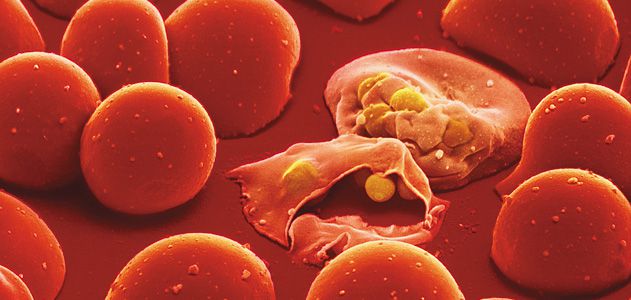Recognition of malaria, the ordinary mosquito-bear disease, might turn out to be affordable and take consume seconds with a fresh moveable device, the achievement of scientists from two institutes in Kolkata. A group of scientists from the Indian Institute of Engineering Science and Technology in collaboration with the Institute of Engineering and Management, claim to have designed a low-cost and mobile malaria detection method, which can also identify dengue with some alteration.
How the test kit works:
“We have connected a mobile handset camera on a paper microscope that can be employed to take picture of sample of blood with some chemicals on a slide, and the information can be processed to detect the presence of malaria cell at a central server at a central server,” Dr Arindam Biswas, IIEST, Shibpur Head of IT Department, claimed to the media in an interview last week. The paper microscope, also dubbed as “foldscope” is an ocular microscope that can be arranged from simple elements, comprising lens and paper. The results are given back to the isolated client, and the doctor enrolled in database of the system can authorize the information and prescribe therapy for that reason, he claimed. All tests carried out by the system are mechanically logged on the distant central server.

Cost of test:
“Each patient will require a cost of just Rs 10 for every test alongside a sample of blood taken from his finger tip, and the distant testing service will offer a hard copy of the report and provide results within seconds,” he claimed. Biswas claimed that he had worked together with the project taken on by Nilanjana Dutta Roy, IEM Professor and his PhD student, and Debapriya Paul & Nilanjan Daw—2 of her research students at the institute. To a query about patenting the system, he claimed, “The paper microscope was designed by Stanford University and it has been previously present. The microscope has been presented to the research group by Stanford.”

Biswas, on the other hand, further added that the monitoring, detection, and mitigation framework of malaria developed by the team has been patented.###